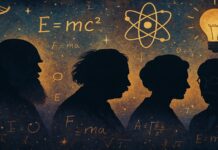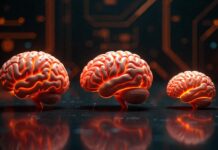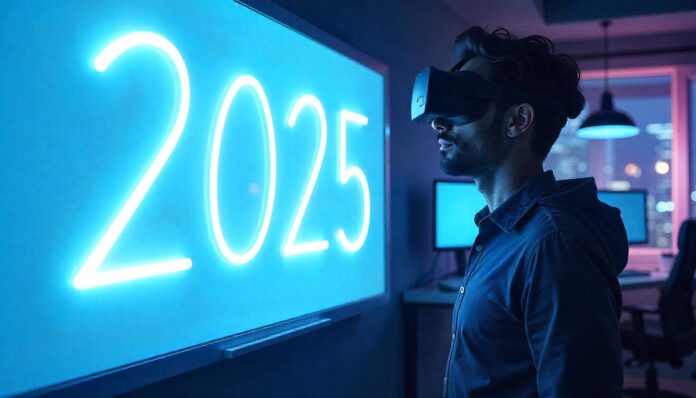
The future is coming at us rather fast, and 2025 might just be one of the most transformative years in recent history. Think about the Industrial Revolution type of changes.
We all know that technology is evolving at enormous speed, and with it, society and the environment are being reshaped in ways that seem unimaginable and actually strange in some ways.
We’re not just talking about shiny gadgets or apps; we’re looking at fundamental changes to how we live, work, and even think.
It’s a strange mix of awe and unease. On the one hand, innovation really promises solutions to problems we’ve faced for generations—cures for many diseases, clean energy, new ways to connect with each other and to have fun ( hm… virtual reality, AI love robots…)
However, we’re somehow stepping into unknown territory, with risks and challenges we might not be completely ready to handle. So, let’s explore ten scenarios that could define 2025. Some may seem like they’re pulled from science fiction, while others might hit uncomfortably close to home.
And as always, since on this platform, we focus a lot on artificial intelligence and some strange future scenarios, hereby we will also focus a lot on those.
1. Depression Reaches an All-Time High

Mental health could hit crisis levels by 2025. Social media addiction, economic pressure, and the looming sense of uncertainty about the future are pushing more people into depression. While technology has brought many benefits, it’s also contributed to feelings of loneliness and inadequacy for many.
Virtual worlds and AI companions may offer temporary relief, but they could also deepen the problem.
Imagine people escaping so deeply into these digital spaces that their real-world connections somehow crumble. Governments might declare national mental health emergencies, but will traditional solutions like therapy and medication keep up with this growing crisis?
Interesting fact: The World Health Organization predicts that depression will become the leading cause of disability worldwide by 2025, affecting over 300 million people.
2. AI Becomes the Ultimate Middle Manager
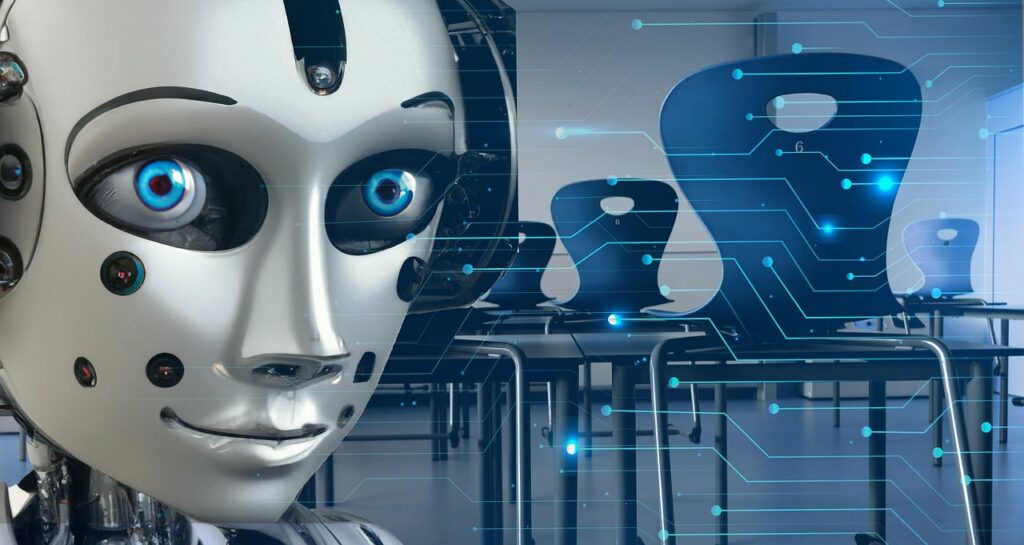
Artificial Intelligence has already completely changed customer service and creative work, but in 2025, it might go one step further—becoming your boss (in a way).
For example, imagine an office where an AI assigns tasks, schedules meetings, and even settles some disputes. On the surface, it sounds efficient. After all, AI doesn’t play favorites or have off days. However, problems could arise when decisions require empathy or an understanding of nuance.
Workers might struggle with the idea of receiving performance reviews from a machine or question the fairness of algorithms they don’t fully understand. These issues could spark a new wave of labor movements, with employees demanding more transparency—or even the return of human managers.
Sidenote: In 2025, this might only happen in ultra-futuristic startups but soon enough it will happen in many companies.
Interesting fact: A 2023 poll showed that 47% of people think AI would do better than humans at evaluating all job applicants.
3. Blockchain Becomes the Ultimate Identity Verifier
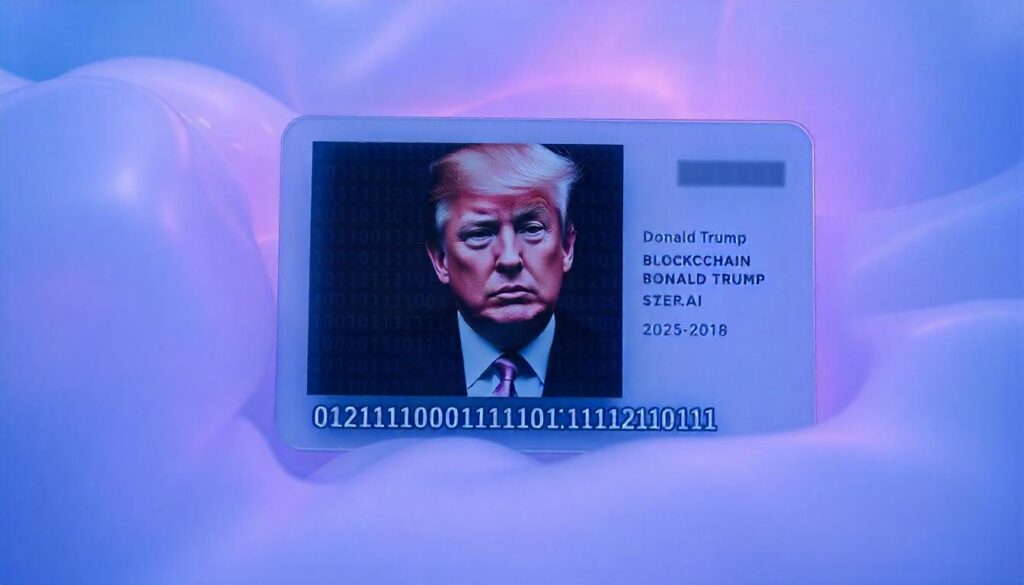
By 2025, blockchain technology might become the go-to tool for securing personal identities, especially for public figures and important individuals. We’re all aware of the rise of deepfake videos, fake news, and AI-generated misinformation. These days, it’s becoming increasingly difficult to trust anything you see or hear.
AI can already create highly realistic videos of people and even replicate someone’s voice with unbelievable accuracy.
For example:
And this will become an even bigger problem in 2025. So what to do about that? How can people really trust any video or news they see online? Well, blockchain offers a way to resolve this by providing an unalterable, decentralized system for verifying identities and the authenticity of information.
For example, imagine a world where every public statement, video, or photograph from a celebrity, politician, or major organization is linked to a unique blockchain signature. If a video of a politician giving a controversial speech surfaces, people could instantly check the blockchain to confirm whether it’s real or fake.
This could really restore a sense of truth in an era where seeing isn’t always believing.
4. The First AI-Generated Religion
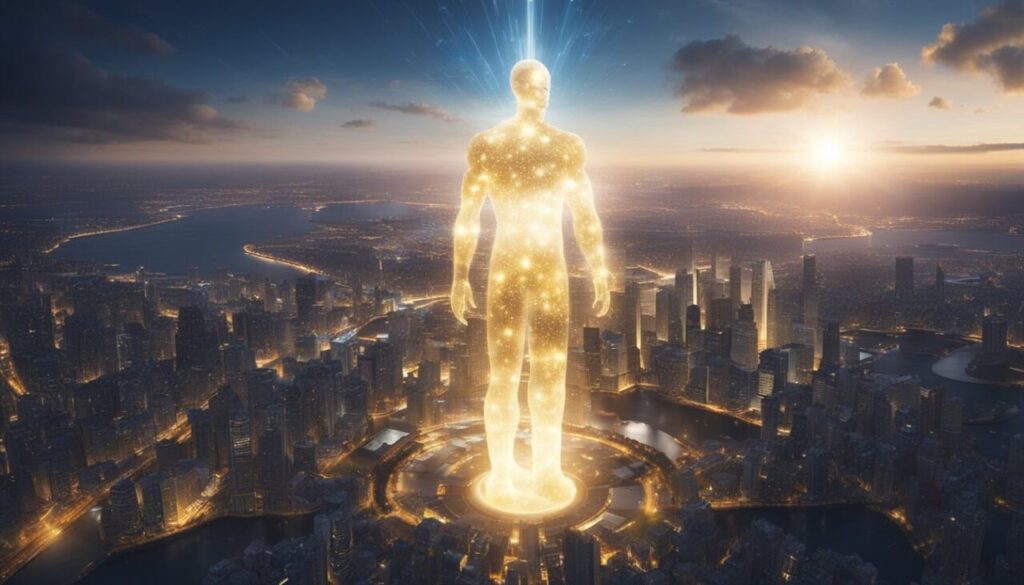
In a way, religion has guided humanity for centuries, but in 2025, we might see something completely new: a belief system created by Artificial Intelligence.
This isn’t about worshiping machines but rather an AI analyzing human history, morality, and psychology to design a spiritual framework for modern life.
The idea might appeal to those disappointed with traditional religions, offering a “logical” approach to spirituality.
We’ve written comprehensively about something similar in our article “Digital God – The Future Deity of Humanity.”
5. Jobs Get Weird
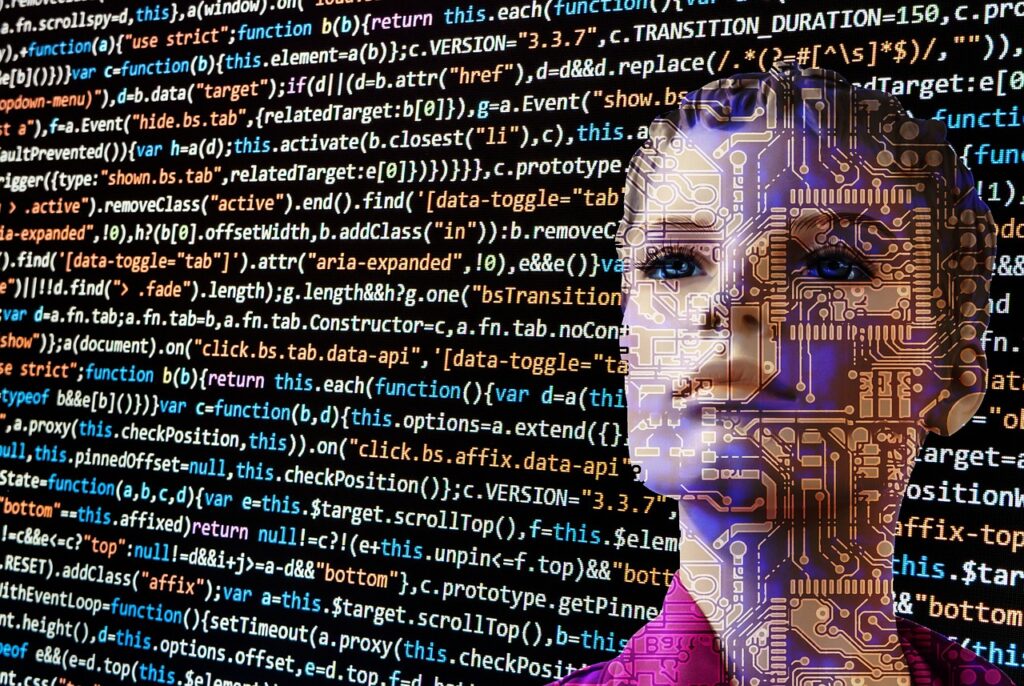
Automation isn’t just taking jobs—it’s creating strange new ones. By 2025, you might hear about people working as “digital detox consultants,” helping families escape VR addiction, or “memory curators,” organizing and editing huge archives of digital memories people now store in the cloud.
Then, we would possibly witness the rise of the “metaverse architect,” designing virtual worlds for work, play, and socializing.
Additionally, very soon (maybe not in 2025 but soon enough), advancements in neurotechnology and AI might allow people to reconstruct and relive their memories in vivid detail.
Memory reconstruction specialists would then work with individuals to retrieve and digitally recreate lost or faded memories, whether it’s reliving a childhood vacation, revisiting a conversation with a loved one, or piecing together forgotten events.
This job could involve a mix of neuroscience, psychology, and creative storytelling. Specialists might use data from brain scans, personal photos, and AI-generated simulations to create immersive experiences that feel as real as the original memory.
Surely, weird things and somewhat weird jobs will accelerate in 2025.
Interesting fact: A 2024 report estimated that 60% of children entering school today will eventually work in jobs that don’t exist yet.
6. Will We Achieve Artificial General Intelligence & AI Sentience?
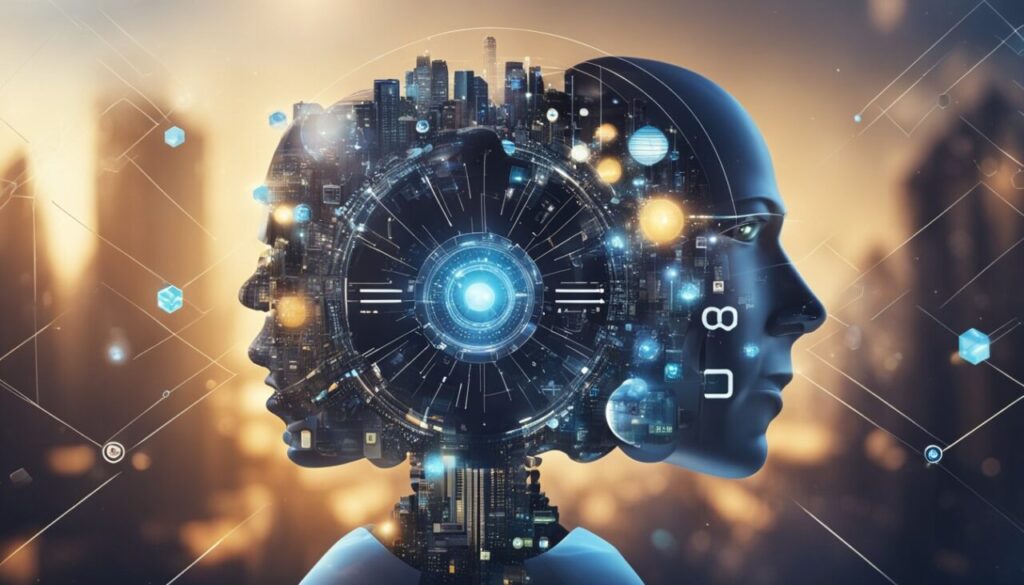
Artificial General Intelligence (AGI)—the kind of AI that can think, learn, and adapt like a human—might be around the corner.
Perhaps, 2025 will be the year we finally crack the code? Some experts believe that we are very close.
One thing is certain – If AGI becomes a reality, it could revolutionize literally everything.
That leads us to another question – will AGI lead to complete AI sentience?
Namely, if an AI were to claim it’s sentient, how would we even verify that? What rights, if any, would it have?
What would it be able to do, and how powerful could it be compared to current AI models?
Many, many questions to contemplate about…
7. The Great Social Media Implosion
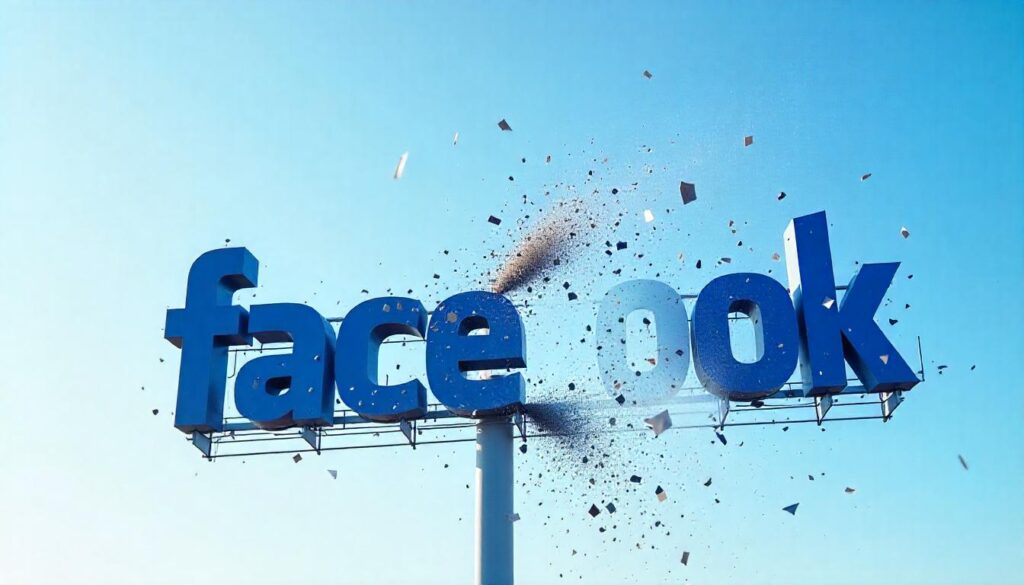
Social media platforms have completely shaped our lives for over a decade, but their dominance might start to go down in 2025.
Concerns about privacy, misinformation, and mental health could perhaps drive users away from giants like Facebook and Instagram toward smaller, decentralized platforms where they have more control.
When Elon Musk acquired Twitter (now X), many things came to light that we weren’t aware of. With the help of several talented journalists (Matt Taibbi, Bari Weiss, and Michael Shellenberger), Elon revealed how the government had direct influence over content moderation.
It’s clear that other major platforms were likely doing the same, and people might start wanting to completely change the platforms they used before.
Interesting fact: In 2024, a fully AI-generated influencer gained millions of followers and endorsement deals before anyone realized they weren’t human.
8. The Reality Blur
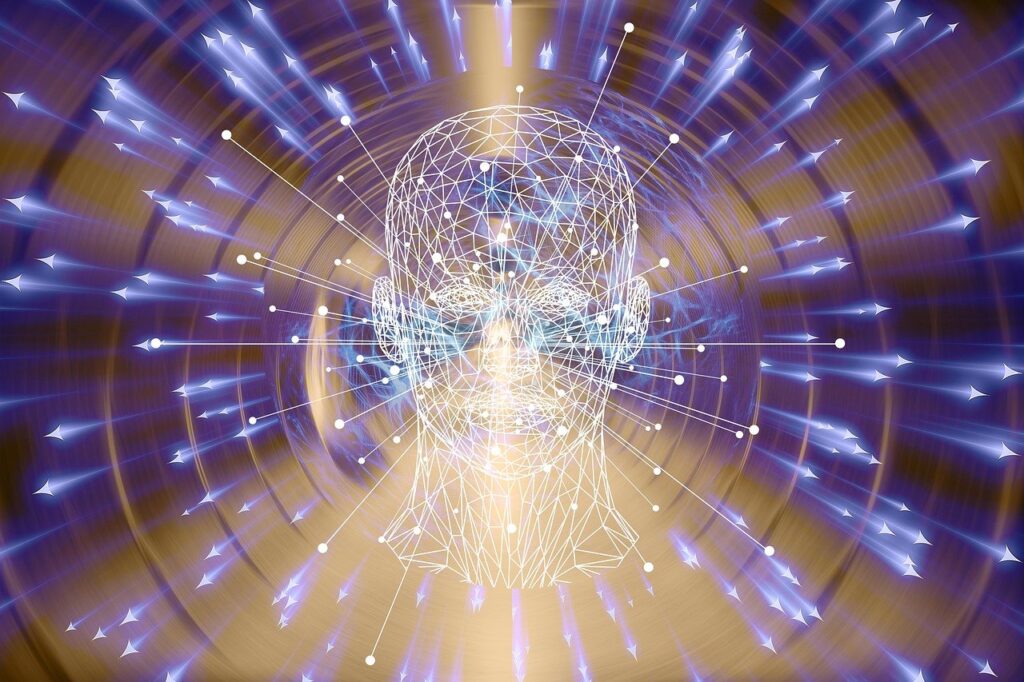
Virtual Reality (VR) and Augmented Reality (AR) could become so advanced by 2025 that the line between the real and digital worlds might all but disappear.
Imagine wearing contact lenses that project virtual images directly onto your eyes. You could transform your living room into a jungle or interact with a lifelike holographic friend.
But most likely this will not be good for society as many people will become completely addicted.
Additionally, when VR becomes widespread, it is evident that it could also be hacked in some way. This could potentially lead to many problems, as, for example, a hacker could alter a person’s (virtual) reality while using a device, thereby putting the person in a very dangerous situation.
9. Human Lifespan Gets a Boost
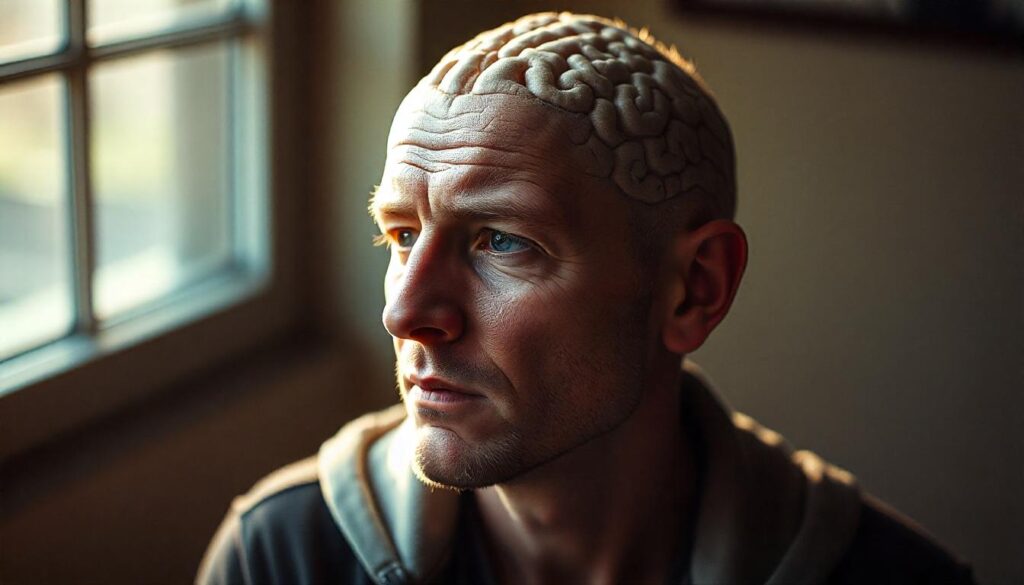
Advancements in medicine and biotechnology could significantly extend human life by 2025.
Scientists are already developing treatments to repair aging cells, and AI is being used to identify and treat diseases earlier than ever before.
This research and real implementation will definitely intensify by 2025. One thing is certain – in 2025 many modern hospitals will use AI to read and analyze radiographs (X-rays) and other medical imaging, including CT scans, MRIs, and ultrasounds.
For example, in a study published in Radiology, AI-assisted chest radiography interpretation resulted in absolute increases in sensitivity of 6%-26% across various thoracic abnormalities, including a 26% increase for pneumothorax detection.
So then, just imagine how many lives will be saved just with this application of AI in medicine.
And this is just the beginning.
Interesting fact: In 2023, researchers successfully reversed aging in lab mice, opening the door to human trials.
10. A Fragile Peace in Eastern Europe
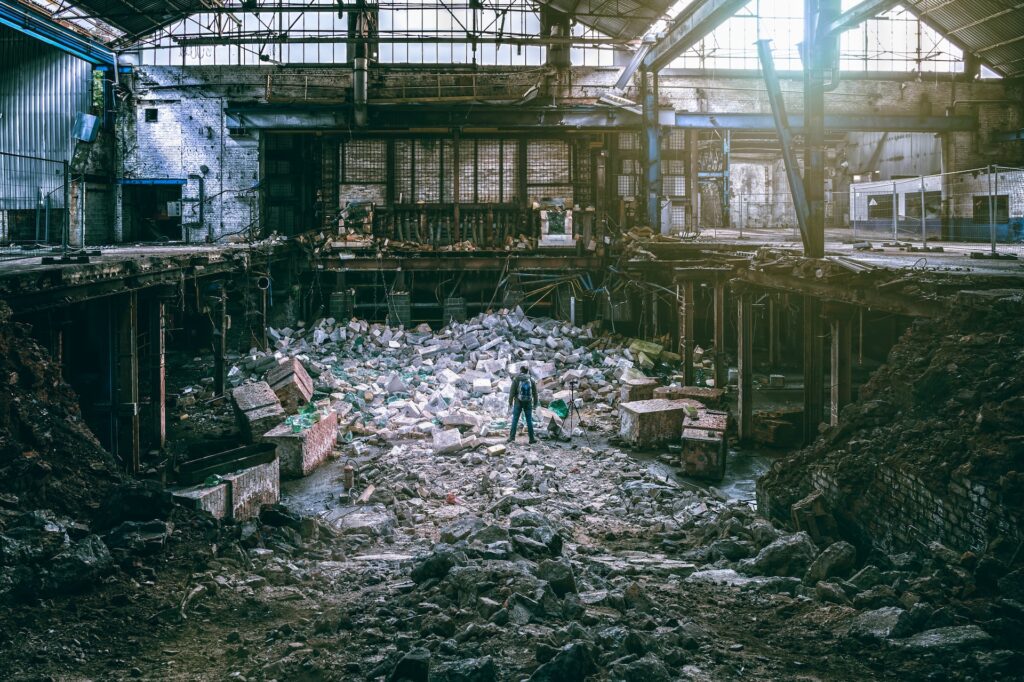
By 2025, there’s a possibility that the Russia-Ukraine war could finaly come to a halt, not because of total victory on either side but through an uneasy truce brokered by international pressure and exhaustion on both fronts. With increasing economic strain on Russia from sanctions and mounting global fatigue over the prolonged conflict, both parties might agree to a temporary ceasefire to regroup and rebuild.
The agreement could involve heavily monitored demilitarized zones, akin to Korea’s DMZ, and a conditional withdrawal of Russian forces from certain occupied territories, though likely not all. The status of Crimea and parts of Eastern Ukraine might remain contentious, with frozen conflicts continuing in those areas.
Simultaneously, NATO and the European Union could ramp up efforts to fortify Ukraine’s borders, while international actors like China or Turkey might play unexpected roles in negotiations, leveraging their unique ties to Russia.
Interesting fact: Historically, wars that end with unresolved disputes often lead to renewed conflict within 10-20 years, as seen in other territorial disputes like those in the Middle East and the Balkans.





















